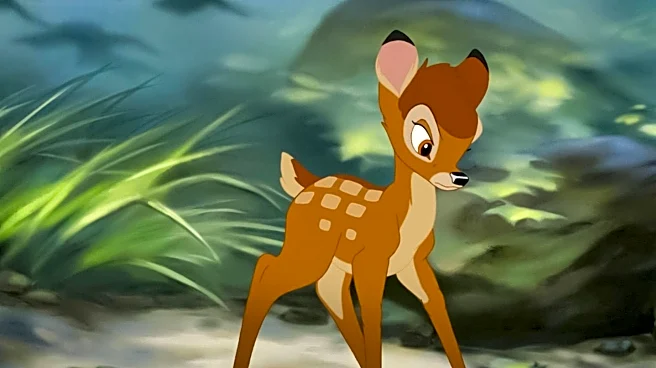What's Happening?
Disney enthusiasts, often referred to as 'Disney Adults,' have been labeled as 'the most hated group online' due to their intense passion for Disney parks and culture. This group includes adults who, with or without children, prioritize Disney experiences, sometimes to the extent of skipping traditional wedding expenses for Disney character appearances. The phenomenon is explored in AJ Wolfe's book 'Disney Adults: Exploring (And Falling In Love With) A Magical Subculture,' which highlights the dedication of fans who even scatter loved ones' ashes at Disney attractions. Despite criticism, Disney continues to attract millions of visitors, including child-free millennials and Gen Xers, drawn by the comfort and nostalgia Disney offers.
Why It's Important?
The growing adult fandom for Disney reflects broader societal trends where individuals seek comfort and community in familiar and nostalgic experiences. This trend has implications for the entertainment industry, as companies like Disney capitalize on adult nostalgia to drive revenue. The phenomenon also highlights the psychological aspects of fandom, where adults use Disney as a means to reconnect with their inner child and find joy in predictable and safe environments. This could influence how entertainment companies market their offerings to adult audiences, potentially leading to more adult-focused events and experiences at theme parks.
What's Next?
As the adult Disney fandom continues to grow, Disney may further tailor its offerings to cater to this demographic, potentially increasing adult-focused events and experiences. This could lead to a shift in how theme parks are marketed and designed, with more emphasis on adult nostalgia and comfort. Additionally, the criticism of Disney Adults may spark discussions on the balance between fandom and personal responsibilities, prompting individuals to evaluate their spending and engagement with such hobbies.
Beyond the Headlines
The intense dedication of Disney Adults raises questions about consumer culture and the psychological need for escapism in modern society. It also touches on ethical considerations regarding the commercialization of nostalgia and the impact of corporate strategies on personal identity and community building. As Disney continues to attract adult fans, it may face scrutiny over its role in shaping cultural norms and expectations around leisure and happiness.









